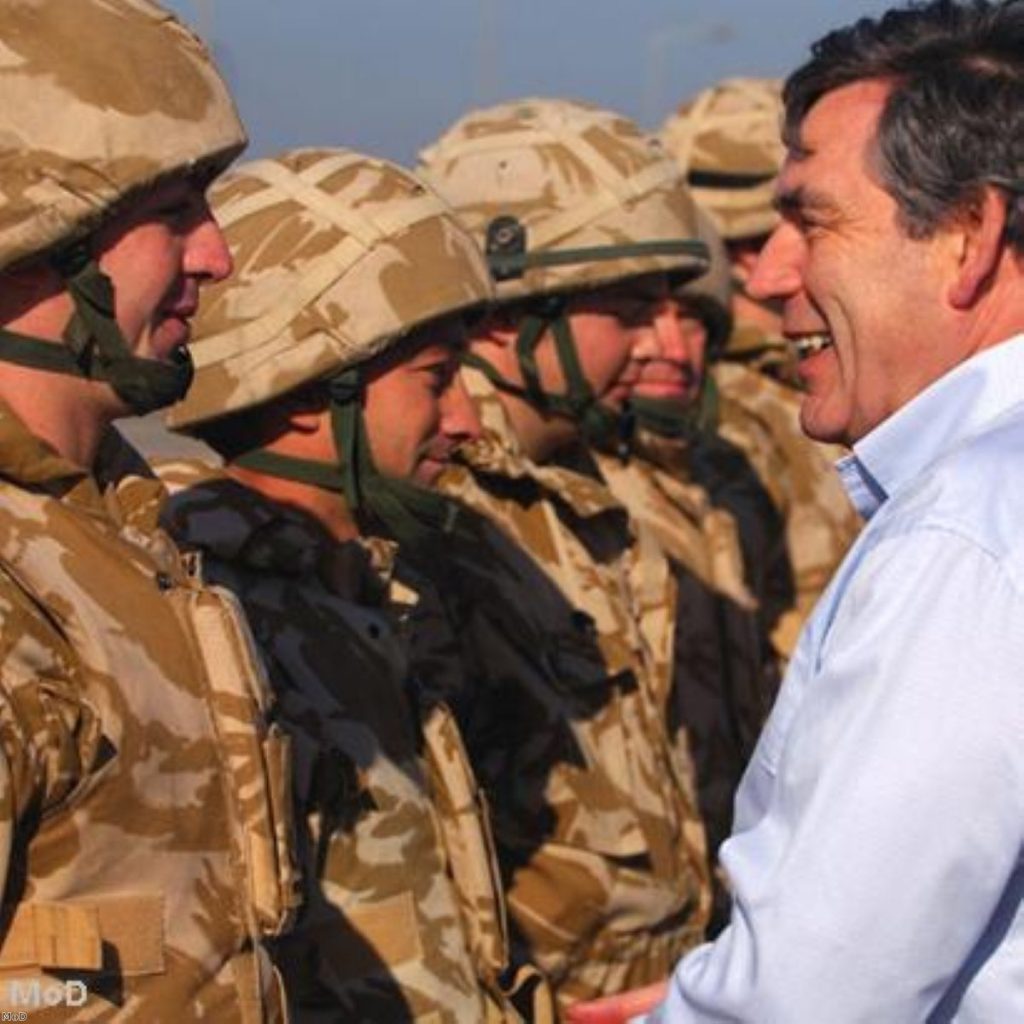Peers told MPs should not have right to declare war
One of Gordon Brown’s flagship plans for constitutional reform has been greeted with scepticism by senior military figures.
Former chiefs of defence staff have cast doubt on the prime minister’s plan to hand parliament the final say on whether Britain goes to war.
In a House of Lords debate they warned it would not work within the realities of military conflict and risked undermining troops’ morale if MPs were not seen to be behind operations.
In one of his first announcements after entering number 10, Mr Brown said he intended to transfer many of the prime minister’s traditional powers to parliament, including the power to declare war.


Mr Brown said the exclusive exercise of such powers had “no place in a modern democracy”.
Speaking for the government yesterday, Field Marshall Lord Brammall told peers: “It is unthinkable that in this day and age our democratic government should actually commit armed forces into a substantial war situation without the manifest assent of parliament.”
But General Lord Guthrie of Craigiebank warned “secrecy, security and surprise” were critical for many military operations and risked being undermined by parliamentary debate.
He argued for the need to maintain flexibility, rather than “slavishly follow” a set procedure which could endanger personnel.
Lord Guthrie said: “The services want to know that the country is behind them before they are committed, and they are supported by parliament and that what they are being asked to do is legal.
“Parliament’s stamp of approval is important – but parliament must run the risk of hampering the lives of service men and women.”
Field Marshall Lord Inge questioned how parliament could be consulted in time, adding any delays caused by discussion would be “bound to affect planning and morale”.
With Mr Brown’s reforms following closely parliamentary and public unease over Iraq, The RAF Marshall Lord Craig of Radley pointed out the circumstances leading to the invasion of Iraq may not be repeated.
Lord Craig said: “How often in future are we going to embark on offensive wars of choice? Have we not had enough of them?”
He argued the prime minister should continue to make the order for war, but face the possibility of a retrospective vote of no confidence.









